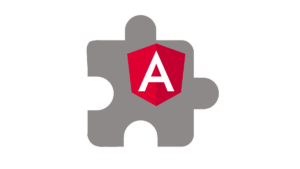Angular, with its powerful features and robust framework, enables developers to build dynamic and sophisticated web applications. However, managing the complexity of Angular projects can be challenging, especially as applications grow in size and scale. Writing clean and maintainable code is crucial for the long-term success of any Angular project. In this article, we’ll explore some best practices and tips for writing clean code in Angular, ensuring your projects remain organized, scalable, and easy to maintain.
1. Follow Angular Style Guide
Adhering to the official Angular Style Guide is a fundamental step in maintaining a consistent and standard codebase. This guide outlines best practices for coding conventions, file structure, and naming conventions, ensuring that your code is clean, readable, and easy to understand for other developers.
2. Modularize Your Code
Breaking down your application into smaller, manageable modules enhances maintainability and scalability. Aim to create modules based on functionality and features, keeping each module focused on a specific aspect of the application. This approach not only improves code organization but also promotes code reusability across different parts of your application.
3. Use Reactive Programming
Embrace reactive programming principles with the use of RxJS, as it enables you to manage and manipulate asynchronous data streams efficiently. Leveraging observables for handling events, managing data flows, and making HTTP requests can lead to cleaner and more predictable code, reducing the complexity associated with managing asynchronous operations.
4. Component-based Architecture
Adopt a component-based architecture, where each feature is represented by a standalone component. This approach promotes reusability, encapsulation, and maintainability. Strive to create small, focused components with clear responsibilities, making it easier to manage and debug your application.
5. Optimize Template Files
Keep your template files concise and focused on rendering data rather than implementing complex logic. Extract repetitive code into reusable components and utilize Angular’s built-in directives and pipes to simplify and enhance the readability of your templates.
6. Efficient Dependency Management
Be mindful of your project’s dependencies and strive to keep them updated to the latest versions. Regularly review and remove any unnecessary dependencies to reduce the application’s overall size and improve performance.
7. Consistent Naming Conventions
Adopt consistent and meaningful naming conventions for variables, components, services, and files. Choose descriptive names that accurately represent the purpose and functionality of each element, making it easier for other developers to understand your codebase.
8. Error Handling and Logging
Implement robust error handling and logging mechanisms to capture and report errors effectively. Use Angular’s error handling features and logging libraries to track and debug issues, ensuring a smoother development and debugging process.
9. Unit Testing and Automation
Write comprehensive unit tests for your Angular components, services, and directives to verify their functionality and catch potential bugs early in the development process. Automate your testing process using tools like Karma and Jasmine to maintain code quality and ensure that new changes do not introduce unexpected issues.
10. Code Reviews and Documentation
Encourage regular code reviews within your development team to identify any potential code smells, architectural issues, or deviations from coding standards. Additionally, maintain clear and concise documentation for your codebase, including inline comments, API documentation, and high-level project documentation, to facilitate collaboration and understanding among team members.
By incorporating these best practices into your Angular development workflow, you can significantly improve the quality and maintainability of your codebase. Clean code not only enhances the overall development experience but also contributes to the long-term success and scalability of your Angular applications.
11. Single Responsibility Principle
Adhere to the Single Responsibility Principle (SRP) by ensuring that each function, class, or component has a single, well-defined responsibility. This promotes clean, focused code that is easier to test and maintain. If a component or service becomes too complex, consider refactoring it into smaller, more specialized units.
12. Avoid Nested Subscriptions
When working with observables and asynchronous operations, avoid deeply nested subscriptions. Use operators like mergeMap, switchMap, and concatMap to flatten and manage observable chains. This reduces the callback hell and ensures cleaner, more readable code.
getData()
.pipe(
switchMap(data => getMoreData(data)),
map(result => processResult(result))
)
.subscribe(finalResult => {
// Handle the final result
});
13. Linting and Formatting
Integrate a code linter and formatter like ESLint or TSLint into your development environment. Configure and enforce coding standards and formatting rules to maintain a consistent code style across your project. This not only improves code quality but also helps catch potential issues early in the development process.
14. Code Splitting
Leverage Angular’s built-in support for code splitting to improve the loading performance of your application. Splitting your code into smaller, more focused bundles allows for faster initial page loads and reduces the overall size of the application.
15. Continuous Integration
Implement continuous integration (CI) pipelines that include automated code quality checks, testing, and deployment processes. CI ensures that clean code practices are enforced and that your application remains in a deployable state throughout its development lifecycle.
16. Refactor and Review Regularly
Regularly review and refactor your codebase to keep it clean and maintainable. As your project evolves and requirements change, some parts of the code may become obsolete or less efficient. Refactoring helps you adapt to these changes while maintaining code quality.
Conclusion
Writing clean and maintainable code is a continuous effort that pays off in terms of reduced development time, improved collaboration, and a more robust application. In the world of Angular development, applying these best practices can make a significant difference in the quality of your code and the long-term success of your projects. Clean code not only eases development but also contributes to a happier and more productive development team.





